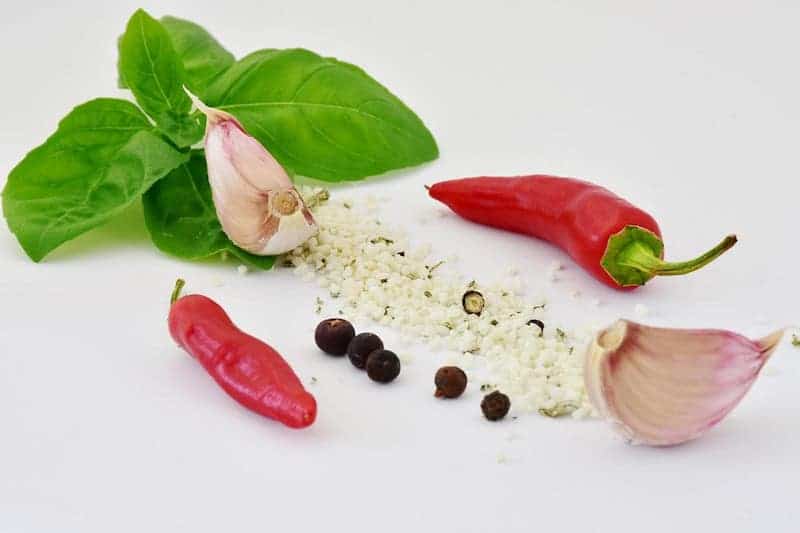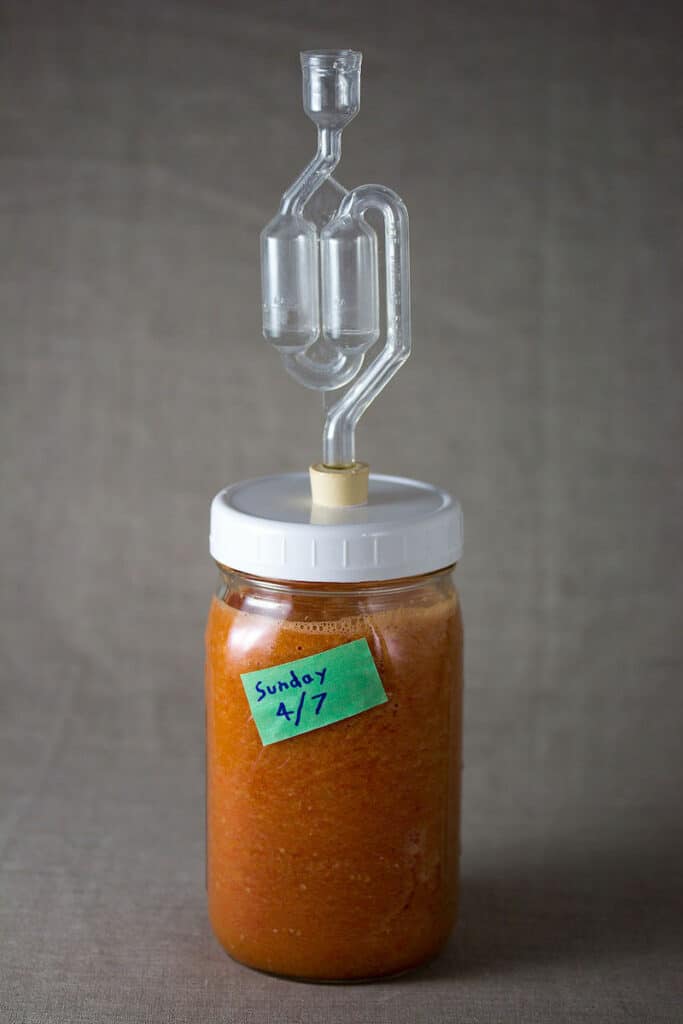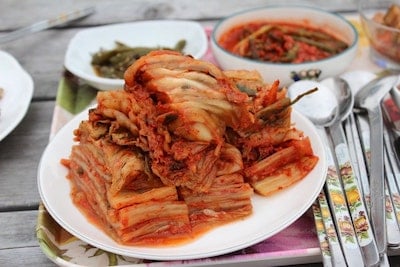What Should My Fermented Hot Sauce Brine Percentage Be?
Your fermented hot sauce brine percentage is one of the most important factors affecting the result of your fermenting efforts.
In the best-case scenario, too little salt in brine makes the sauce taste unbalanced.
In the worst-case scenario, it increases the risk of product spoilage. But too much salt may significantly slow down the fermentation process or stop it entirely.
In this article, I’ll explain how to get the salt concentration in fermented hot sauce just right.
Read on to learn how to calculate the amount of salt needed to prepare the perfect hot sauce.
Why Is Brine Percentage Important to Get Right?
The water to salt ratio in your hot fermented sauce brine is extremely important and the saltiness of the final product isn’t the main reason.
Salt is necessary to preserve your sauce, preventing bacteria from breeding.
It may seem that the more salt you add the better, as this will ensure good preservation of the product. However, it isn’t that simple.
The fermentation process happens due to thriving lactic acid bacteria contained in hot peppers.
On the one hand, salt is necessary to boost lacto-fermentation.
On the other hand, too much salt prevents any bacteria from breeding – both harmful bacteria and those necessary for fermentation.
That’s why it’s necessary to find a sweet spot of salt concentration in brine to preserve the sauce but not intervene with the fermentation process.
The type of salt you use for brine also affects the fermentation process.
Any salt apart from table salt will do the job. Table salt contains iodine that may negatively affect the fermentation or stop it entirely.
Salt to Water Ratio for Fermenting Peppers
As a rule of thumb, use one to three tablespoons of salt per quart of water.
Ideally, the brine should have a 3-5% salt concentration, though some prefer using brine with up to 10% salt content.
The level of saltiness affects the fermentation speed and the final saltiness of your sauce.
The more salt you add, the slower the sauce will ferment.
It may take some time to find the perfect ratio that fits your preferences.
Using kitchen scales is better than measuring salt with a tablespoon, as a tablespoon of coarse salt weighs less than a tablespoon of fine salt.
Keep this in mind if you don’t have kitchen scales and can’t measure the exact amount of salt you add.
Remember – too much salt may intervene with the fermentation process or stop it entirely.
Too little salt, on the other hand, may result in your sauce spoiling.
To sum it up, a weaker brine concentration results in:
- Higher risk of sauce spoilage.
- Faster fermentation due to not suppressed lactobacillus bacteria.
- Softer sauce contents, as low salt concentration doesn’t preserve cell walls as good as high concentration.
A stronger brine concentration will result in:
- Better sauce preservation.
- Slower or failed fermentation.
- Firmer and crisper sauce contents, as salt strengthens cell walls.
Of course, salt isn’t the only factor that affects the fermentation speed.
It also depends on the acidity and temperature, so adjust the salt concentration and keep these factors in mind.
How Do You Calculate Brine Percentage for Fermented Hot Sauce?
For best results, experts recommend using brine with a 3-5% salt concentration.
To calculate the required amount of salt, divide the water into milliliters by 100 and multiply the result by the desired percentage.
For instance, you have 1,000 milliliters of water. The necessary salt concentration is 4%.
If you divide 1,000 by 100, you will get 10. Multiply 10 by four, and you’ll get 40 grams of salt.
Can You Use Too Much Salt When Fermenting?
Yes, using brine with over 10% salt concentration may intervene in the Lacto-fermentation process.
The higher the salt content, the slower the fermentation process.
Remember that it’s easier to add salt than to remove it.
Therefore, start with a lower salt concentration and increase as required.
In Summary
Hopefully, this article helped you find the ideal fermented hot sauce brine percentage you need.
Keep in mind that the salt content isn’t the only factor that affects the final result.
Each sauce is different, so you should consider the temperature and ingredients used when making the brine.
Keep practicing and you’ll inevitably find the sweet spot.









